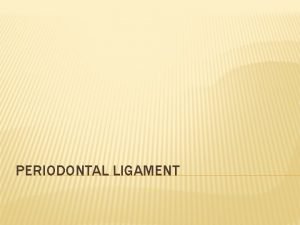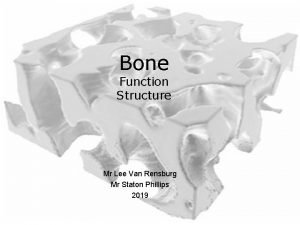Transplantation of ACE 2 Mesenchymal Stem Cells Improves

- Slides: 1

Transplantation of ACE 2 - Mesenchymal Stem Cells Improves the Outcome of Patients with COVID-19 Pneumonia Leng Zikuan, Zhu Rongjia, Hou Wei, Feng Yingmei, Yang Yanlei, Han Qin, Shan Guangliang, Meng Fanyan, Du Dongshu, Wang Shihua, Fan Junfen, Wang Wenjing, Deng Luchan, Shi Hongbo, Li Hongjun, Hu Zhongjie, Zhang Fengchun, Gao Jinming, Liu Hongjian, Li Xiaoxia, Zhao Yangyang, Yin 1 Kan, Heof. Xijing, Gao Zhengchao, Wang Yibin, Yang Bo, 2 Jin Ronghua, Stambler Ilia, Lim. Chinese Lee Wei, School Life Sciences, Shanghai University, Shanghai, China. Institute of Basic Medical Sciences Su Huanxing, Moskalev Chakrabarti Sasanka, Min Kyung-Jin, Ellison. Academy of Medical Sciences, Alexey, School of. Cano Basic Antonio, Medicine Peking Union Medical College, Beijing, China. 3 Beijing Hughes Georgina, Calogero, Jin Kunlin, Zhao Robert Chunhuaand Clinical You. An Hospital, Capital Medical Caruso University, Beijing, China. 4 Department of Rheumatology Immunology, Peking Union Medical College Hospital, Chinese Academy of Medical Sciences and Peking Union Medical College, Beijing, China. 5 Department of Orthopaedics, the First Affiliated Hospital of Zhengzhou University, Zhengzhou, China. 6 Institute of Stem Cell and Regeneration Medicine, School of Basic Medicine, Qingdao University, Shandong, China. 7 Department of Orthopaedics, the Second Affiliated Hospital of Xi&#x 02019; an Jiaotong University, Xi&#x 02019; an, China. 8 Department of Neurosurgery, the First Affiliated Hospital of Zhengzhou University, Zhengzhou, China. 9 The Executive Committee on Anti-aging and Disease Prevention in the framework of Science and Technology, Pharmacology and Medicine Themes under an Interactive Atlas along the Silk Roads, UNESCO, Paris, France. 10 International Society on Aging and Disease, Fort Worth, Texas, USA. 11 The Geriatric Medical Center "Shmuel Harofe", Beer Yaakov, affiliated to Sackler School of Medicine, Tel-Aviv University, Tel-Aviv, Israel. 12 School of Biomedical Sciences, Li Ka Shing Faculty of Medicine, University of Hong Kong, China. 13 Institute of Chinese Medical Science, University of Macau, Taipa, Macau, China. 14 Institute of Biology, Komi Science Center of Russian Academy of Sciences, Syktyvkar, Russia. 15 Department of Pediatrics, Obstetrics and Gynecology, University of Valencia, Spain. 16 Maharishi Markandeshwar Deemed University, Mullana-Ambala, India. 17 Department of Biological Sciences, Inha University, Incheon, South Korea. 18 Faculty of Life Sciences &#x 00026; Medicine, King&#x 00027; s College London, UK. 19 Department of Biomedicine, Neuroscience and Advanced Diagnostics, University of Palermo, Italy. 20 University of North Texas Health Science Center, Fort Worth, TX 76107, USA. Figure 3. The profile of the peripheral blood mononuclear cells of patients. The mass cytometry results of peripheral blood mononuclear cells of the enrolled patients (A, B) and the critically severe patient (C). No increase of regulatory T cells (CXCR 3 -) or dendritic cells (DC, CXCR 3 -) for the two patients of common type (Patients 4 and 5, Figrue 3 A ). But in the severe patients, both the regulatory T cells and DC increased after the cell therapy, Aging and Disease, 2020, 11(2), 216 -228. DOI: 10. 14336/AD. 2020. 0228 especially for the critically severe patient 1 ( Figure 3 B ). Moreover, for the critically severe patient 1, before the MSC transplantation the percentages of overactivated CXCR 3+CD 4+ T cells (#9), CXCR 3+CD 8+ T cells (#17), and CXCR 3+ NK cells (#12) in the patient&#x 02019; s PBMC were remarkably increased compared to the healthy control ( Figure 3 C ). However, 6 days after MSC transplantation, the overactivated T cells and NK cells nearly disappeared and the numbers of the other cell subsets were almost reversed to the normal levels, especially the CD 14+CD 11 c+CD 11 b mid DC (#20) population. Normal: healthy individuals, MSCs: mesenchymal stem cells transplant group, Ctrl: placebo control group.

